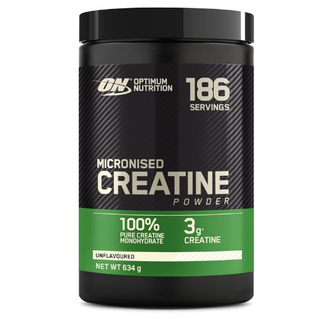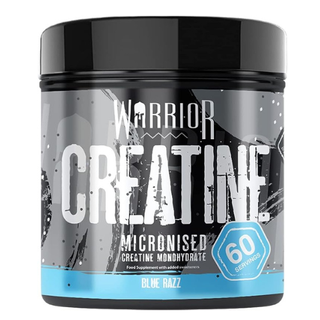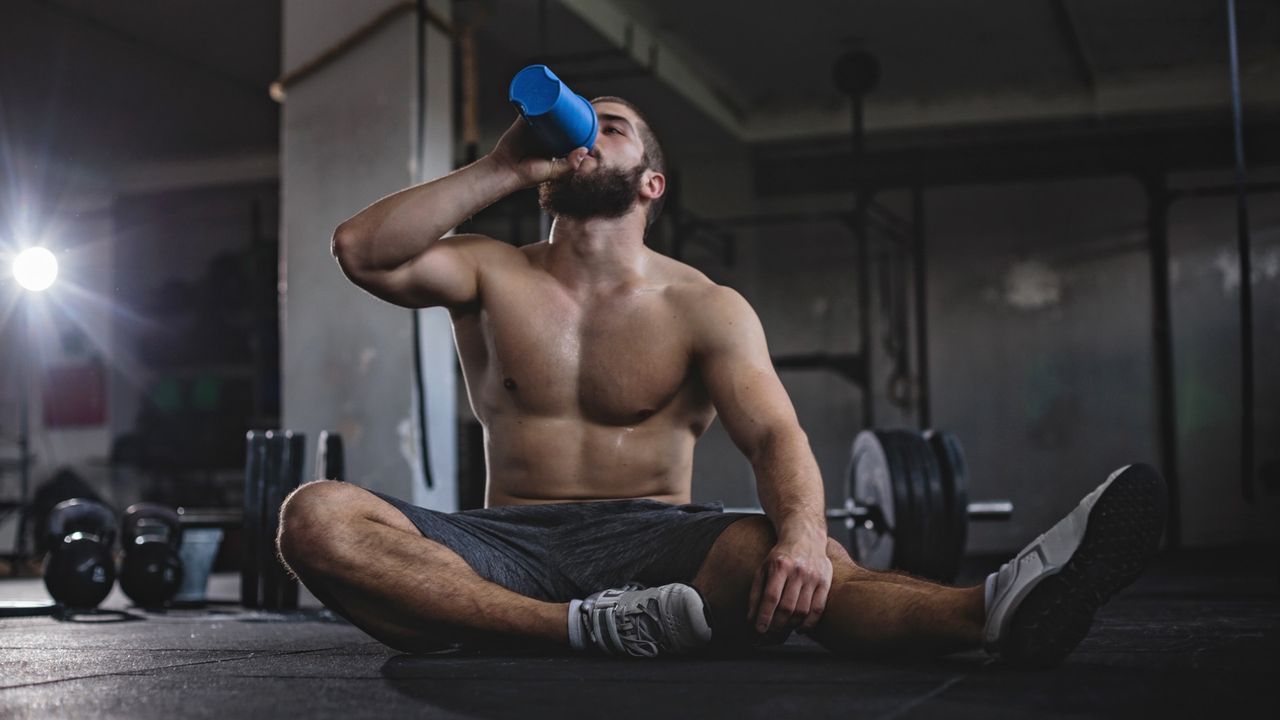

When it comes to the world of fitness supplements there are many; from protein powder to BCAAs, electrolytes, EAAs…the list could go on forever. But one supplement that everyone raves about is creatine.
I first started taking creatine a month or two after I began lifting weights, back in 2020, as many of the bodybuilders at my gym kept telling me that it’s the one supplement I should “definitely take”. This is probably because creatine is one of the most well researched supplements with several scientific studies proving its efficacy.
“It’s a naturally occurring compound that helps your muscles produce energy, particularly during high-intensity activities like weightlifting, sprinting, or explosive movements,” says Obi Vincent, C4 Energy athlete and ambassador. “When you exercise, your muscles use ATP (adenosine triphosphate) for quick bursts of energy. However, your body only stores a limited amount of ATP, which runs out quickly during intense workouts.
“Creatine helps replenish ATP by supplying your muscles with phosphocreatine, a stored form of energy, which allows your muscles to regenerate ATP faster, giving you more energy to continue performing at a high level.” As a result, it helps you push harder, lift heavier, or perform more reps during your workouts."
I’ve been training for four years now and I’ve pretty much taken creatine every single day (apart from the odd occasion on the weekend when I'm not training and I forget). It's the one sport supplement I'm actually glad that I invest in, because it’s significantly helped my training and had a positive impact on my body. Here’s three things I’ve learned from taking it…
1. It didn’t make me gain weight
‘Does creatine make you gain weight’ is one of the most highly searched questions around the supplement, as people panic and think they’ll immediately pack on the pounds (even though it contains no calories). While I’m much heavier than I was four years ago – by almost six kilos – this is not down to the creatine making me gain fat, it’s because I’ve gained muscle. Creatine can increase water retention to the muscles, which is why the numbers on the scale can begin to sneak up, but this also can leave you muscles looking fuller, so I see it as a win. After all, who doesn't enjoy looking like they've got a great pump? It’s also important to remember that if you’ve been able to train harder whilst taking creatine and have gained muscle as a result that your weight will increase too.
A post shared by Bryony Firth-Bernard 🤍 (@bryonyfb)
A photo posted by on
2. I gained muscle and got stronger
To reiterate this isn’t because taking creatine magically turns you into the Hulk; it’s the energy it gives you which then allows you to push harder in training. Push harder and you’ll get more gains, and that’s exactly what I experienced. The picture on the left, above, is when I started the gym, the one on the right is a year later – I’ve clearly gained some muscle and lost body fat (not creatine's job FYI). Fast forward to today, and I’ve gained more. In terms of what weights I was hitting, I’ll be completely honest, it’s hard for me to pinpoint exactly what I was doing week to week four years ago. However, for an idea, on the left in the picture below is what I was squatting when I first entered the gym. The one on the right is where I am now. With over 67 kilo difference between the two weights, strength gains have clearly been made.
Sign up to the T3 newsletter for smarter living straight to your inbox
Get all the latest news, reviews, deals and buying guides on gorgeous tech, home and active products from the T3 experts
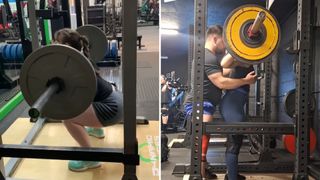
3. You need to be consistent
When I first started taking creatine I was doing it pretty sporadically (as I was probably also worried about gaining weight too) and, as a result, I didn’t really notice any changes in my performance. It was only when I mentioned this to an older guy at the gym who told me to be consistent and take it every day that I began to spot the differences within my training. Probably around the two and half week mark is when I began to notice I was hitting more PBs and wasn't suffering with DOMS as badly. The best way to consume creatine, if you want it to take effect more quickly, is by following the label description and – at least every creatine I've taken – has said to do this daily.
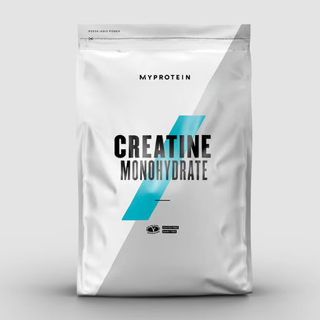
When it comes to affordable supplements you can never go wrong with MyProtein. This bag contains around 83 servings of creatine (3g serving) and it's unflavoured, so you can add it into pretty much anything.

Bryony’s T3’s official ‘gym-bunny’ and Active Staff Writer, covering all things fitness. In her spare time, you will find her in her natural habitat - the gym - where her style of training is a hybrid of bodybuilding and powerlifting. Bryony loves writing about accessible workouts, nutrition and testing innovative fitness products that help you reach your fitness goals and take your training to the next level.
-
 We've seen the Switch 2 in too much detail – its reveal needs to be amazing
We've seen the Switch 2 in too much detail – its reveal needs to be amazingNintendo's staying above the noise, but we need some big news
By Max Freeman-Mills Published
-
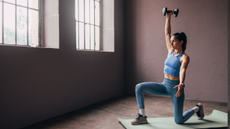 Skip the run — blast through calories with two dumbbells and this 20-minute HIIT workout
Skip the run — blast through calories with two dumbbells and this 20-minute HIIT workoutChris Hemsworth’s trainer, Luke Zocchi, brings you a workout that’ll leave you feeling fitter and stronger
By Bryony Firth-Bernard Published
-
 Normatec Premier review: wireless compression for hassle-free recovery
Normatec Premier review: wireless compression for hassle-free recoveryThe Normatec Premier compression boots use integrated air pumps and eliminate external hoses to make recovery easier than ever
By Bryony Firth-Bernard Published
-
 Pilates vs weight training: what are they and what’s best for you?
Pilates vs weight training: what are they and what’s best for you?Beginners will benefit massively from both approaches to strength training, but each has its merits and downfalls
By Leon Poultney Published
-
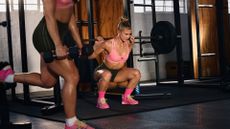 Full-body workouts versus push-pull-legs: which is best for maximal muscle gain?
Full-body workouts versus push-pull-legs: which is best for maximal muscle gain?Discover which of these two popular training programmes is best for you and your end goals
By Leon Poultney Published
-
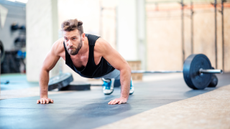 Callisthenics versus weight training: Do you need fancy equipment to build a great body?
Callisthenics versus weight training: Do you need fancy equipment to build a great body?Bodyweight is a powerful tool in building muscle. We run down the key differences between these two training styles
By Leon Poultney Published
-
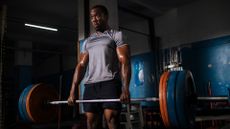 Push-pull-legs vs. upper/lower body workouts: which split is best?
Push-pull-legs vs. upper/lower body workouts: which split is best?Maximise exercise volume to pack on serious muscle with these time-saving workout options
By Leon Poultney Published
-
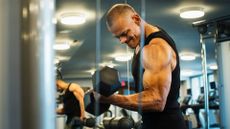 Strength training vs. bodybuilding: What’s the difference and what’s best for you?
Strength training vs. bodybuilding: What’s the difference and what’s best for you?Here’s everything you need to know about building muscle and improving strength
By Leon Poultney Published
-
 Get Fit 2025: T3's ultimate fitness, diet and exercise tips to help you get in shape this year
Get Fit 2025: T3's ultimate fitness, diet and exercise tips to help you get in shape this yearKickstart your fitness journey in 2025 with our guide to workouts, diet tips, and sustainable strategies that will help you get stronger, feel healthier, and stay motivated all year long
By Matt Kollat Published
-
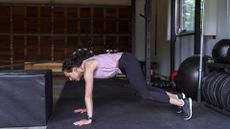 Forget burpees – 5 alternatives that fuel fat loss and build full-body fitness
Forget burpees – 5 alternatives that fuel fat loss and build full-body fitnessIncase you need something that's lower-impact or simply can’t hack throwing yourself to the floor today
By Bryony Firth-Bernard Published
